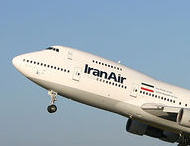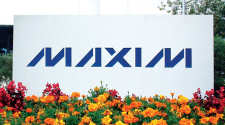
“Warning, Warning!!”
The Electronic Freedom of Information Act Reading Room on the website of the Bureau of Industry and Security (“BIS”) has been recently updated and now includes anti-boycott warning letters for 2008. I’m not certain when the 2008 warning letters appeared on the BIS website, but I’m pretty certain it was after our recent post on BIS’s confusing position regarding the reportability of requests that can be satisfied by a certification by an agent of a shipping company. BIS takes the position that a request for certification that a ship is eligible to enter into certain ports becomes reportable under the anti-boycott regulations if the request allows the certification to be provided by an agent for the shipping company.
Three warning letters for 2008 are now posted in the EFOIA reading room, and two of them involve agent certifications. One states that the following language is reportable:
CERTIFICATE ISSUED BY THE CARRIER/MASTER OR THEIR AGENT CERTIFYING THAT THE CARRYING VESSEL/AIRLINE IS ALLOWED BY ARAB AUTHORITIES TO CALL AT ARABIAN PORTS/AIRPORTS AND IS NOT SCHEDULED TO CALL AT ANY ISRAELI PORT/AIRPORT DURING ITS VOYAGE TO THE UNITED ARAB EMIRATES.
The other singles out this language as reportable:
A certificate from the ship-owner, master or agent of vessel … stating the following: The vessel is eligible to enter into the ports of UAE in conformity with its law and regulations.
Neither of these letters provides any detail as to why these contractual requests are reportable under the anti-boycott regulations, stating only
All U.S. persons are required to comply with the Regulations.
Call me old-fashioned, but it seems to me that a “warning” letter ought to actually provide a warning and explain why the conduct at issue is a violation. Otherwise, just what is the agency “warning” anyone about? Reporting contractual provisions completely identical to the language in the warning letter? That’s not very helpful.
And, frankly, I’m baffled as to why these letters are so cagey in this regard. It certainly wouldn’t be that hard for BIS to say that the language of section 760.5(a)(5)(viii) exempts from the reporting requirements requests from the “owner, master, charterer, or any employee” of a ship as to eligibility to enter specific ports but not requests that permit such a certificate not only from those parties but also from agents of those parties.

 Posted by
Posted by  Category:
Category: 

 When Jesus Argandona, arriving in San Antonio from Mexico City, stepped off his plane, he probably thought his next destination would be his hotel. Instead it was jail. A
When Jesus Argandona, arriving in San Antonio from Mexico City, stepped off his plane, he probably thought his next destination would be his hotel. Instead it was jail. A  An interesting and informative
An interesting and informative  The Bureau of Industry and Security (“BIS””) issued an
The Bureau of Industry and Security (“BIS””) issued an 


